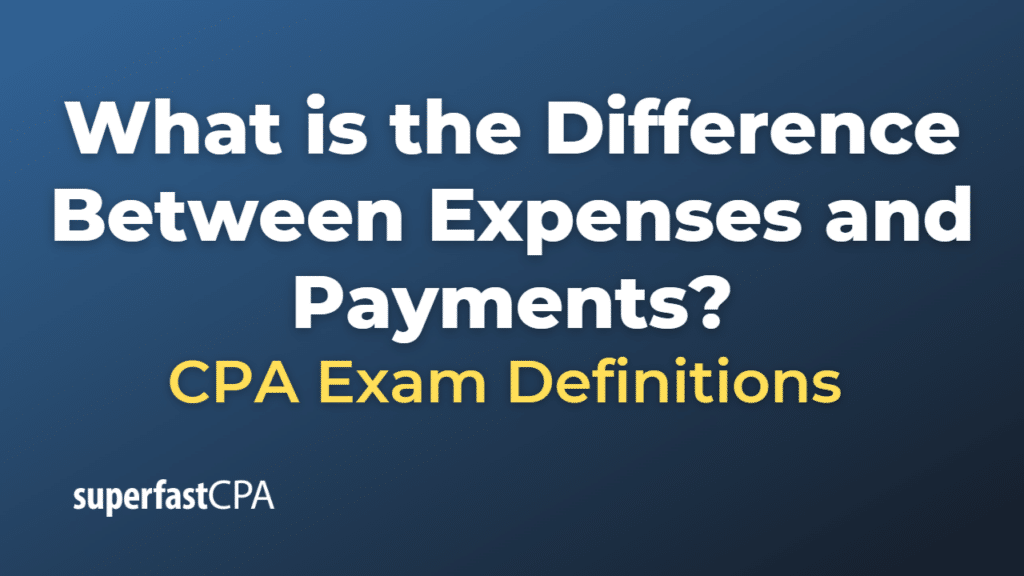Difference Between Expenses and Payments
Expenses and payments represent different concepts in accounting, mainly related to the timing of the transactions and their impact on the financial statements.
- Expenses: In accounting, an expense is the cost incurred in the process of generating revenue. Expenses are recorded in the income statement of a company for a specific period (monthly, quarterly, annually). This follows the accrual basis of accounting, where transactions are recorded when they are incurred, not necessarily when cash changes hands. For instance, if a company uses electricity for its operations in January, but doesn’t pay the bill until February, the cost of electricity would be recorded as an expense in January, when it was used.
- Payments: Payments represent the actual outflow of cash from a company, which could be for expenses, loan repayments, asset acquisitions, dividend distributions, etc. Payments reduce the company’s cash balance but don’t always affect the income statement directly. Following the example above, the cash payment for the electricity bill in February is recorded as a decrease in cash on the balance sheet, but doesn’t affect the income statement in February, since the expense was already recorded in January.
In summary, expenses are tied to the period in which they are incurred, according to the accrual basis of accounting, while payments represent the actual outflow of cash, regardless of the period the related expense is recognized.
Example of the Difference Between Expenses and Payments
Let’s look at an example involving a company named “Tech Startup Inc.”
Scenario – Expense vs. Payment:
Tech Startup Inc. hires a software developer for a project that begins on June 1, 2023. The developer charges $5,000 for the project and will invoice the company at the end of the project. The project is completed by June 30, 2023, and Tech Startup Inc. receives an invoice on that date, but the payment of $5,000 is made on July 15, 2023.
- Expense: The cost of the project, $5,000, is recognized as an expense in June 2023. This is when the service (software development) was provided and completed. Even though no cash has been paid yet, the expense is recorded in June because that’s when the company received the benefit of the service. This follows the accrual accounting principle, which states that expenses are recognized when they are incurred, not when the cash is paid.
- Payment: The actual payment of $5,000 to the developer is made on July 15, 2023. This is a cash outflow and would decrease the company’s cash account in July. But it does not affect the company’s income statement in July, as the expense was already recognized in June.
In this example, the timing of the expense recognition (June) is different from the timing of the payment (July), demonstrating the difference between expenses (accrual-based) and payments (cash-based).













